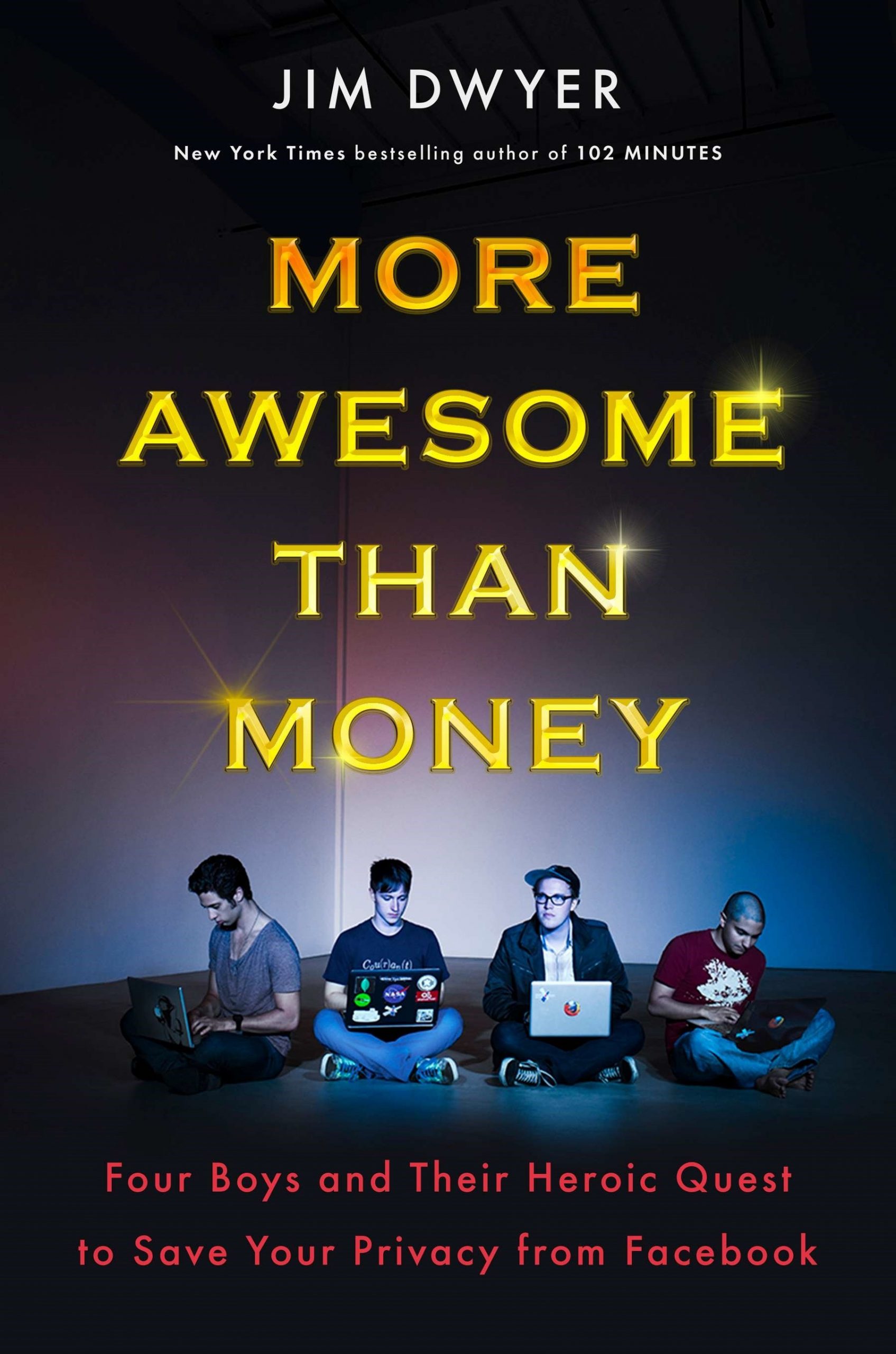Do you remember Diaspora? You might even still be a user. Maybe you donated to its wildly successful Kickstarter. Or sadly, you remember when one of its founders committee suicide.
Diaspora was (and still is) a social media network that was supposed to out-Facebook Facebook. It promised to make coding public and keep your information private, versus the secretive advertising, data and photo-gobbling juggernaut that Facebook has become.
However, Diaspora never lived up to all the hype that transformed an initially modest idea into an unmanageable one. Jim Dwyer, award-winning columnist for The New York Times, tells the riveting story in his new book, More Awesome Than Money: Four Boys and Their Historic Quest To Save Your Privacy From Facebook. We’re pleased to feature it as the first book in Reynolds’ new Win This Book program.
I’ll admit that Diaspora is a fuzzy memory for me, even though its heyday was only four short years ago. However, as I delved into Dwyer’s book, the story quickly came back into focus. Technerds, of course, know this tale by heart.
Diaspora was the brainchild of four New York University students — Max Salzberg, Daniel Grippi, Ilya Zhitomirskiy and Raphael Sofaer. They had watched as Facebook, another student developed project, blew up from a way to connect Harvard kids to an international phenomenon.
What they didn’t like, as Dwyer depicts in More Awesome, was having their own data in Facebook’s grip. Last last decade, they decided to do something about it. “In Diaspora, they aimed to create a tool that would emancipate the power and vitality of social networks from the control of a single company,” Dwyer writes.
The four promised that Diaspora would make its source code public, and sought to build a wide-ranging community for their venture. Did they, ever.
The original project, announced on April 24, 2010, aimed to raise $10,000 on Kickstarter. But as the tech world heard about the project, through fervent media coverage including that by Dwyer, the amount the quartet raised mushroomed to $200,000. The 6,500 donors, reports said, included Facebook founder Mark Zuckerberg himself.
That’s when the Diaspora saga began to spin out of control, a story Dwyer tells in vivid detail through all its twists and turns.
It’s tempting to draw parallels between Dwyer’s book and The Social Network, the film about the founding of Facebook, and it seems likely that More Awesome Than Money will end up on the screen, too.
What sets this book apart is that it is actually a story of failure — albeit a failure far more successful than many tech ventures that succeed. Diaspora got too big, and fell into too much trouble, for the four young men to even fathom finding a way to fix it. And, there was a tragic result.
In 2011, Zhitomirskiy killed himself, not long after funds for the project were mysteriously frozen by PayPal (it later released the money). Dwyer writes chillingly about the scene in which he is found dead. From there the group begins to disband, and by 2012, Diaspora had become a non-profit foundation, which it remains.
Diaspora, as Dwyer writes, never penetrated popular culture, wasn’t a stable of world commerce, and never became something as well known in Brazil as it was in the United States. But, it is still an active, open-source code project, and Dwyer thinks it could be as necessary now as it was when it was conceived four years ago.











